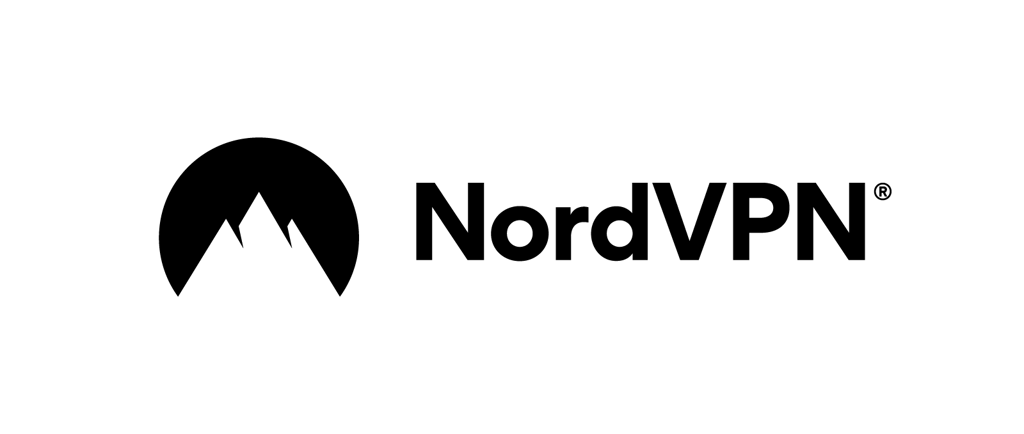Protecting Your Data While Travelling: A Guide to Using NordVPN on Public WiFi
TRAVEL
Stafford Affiliates
1/18/20258 min read
Introduction to the Risks of Public Wi-Fi
In today's digital age, the convenience of public Wi-Fi networks is both a boon and a potential source of significant risk, especially for travelers. While these networks are invaluable for accessing the internet on the go, they are often inadequately secured, posing various threats to users. Public Wi-Fi connections, found in places such as airports, cafes, and hotels, typically lack robust encryption measures, making data interception alarmingly easy for cybercriminals. This means that sensitive information, including passwords, financial data, and personal messages, may be susceptible to unauthorized access.
One of the major risks associated with using public networks is the possibility of man-in-the-middle (MitM) attacks. In this scenario, an attacker secretly relays and possibly alters the communication between two parties who believe they are directly communicating with each other. This type of attack highlights the vulnerabilities inherent in open Wi-Fi access points, where an individual can effortlessly gather unencrypted data as it traverses the network. Furthermore, cyber adversaries can also create rogue Wi-Fi hotspots that mimic legitimate networks, tricking travelers into connecting to them and exposing their data.
Another significant concern is the prevalence of unencrypted connections. Many websites still do not employ HTTPS, which encrypts data exchanged between the user’s device and the server. Using such connections on unsecured networks invites various cyber threats, allowing malicious actors to easily monitor or manipulate the data being transmitted. Consequently, it becomes vital for users, particularly those who are traveling and may access sensitive information, to be aware of these risks associated with public Wi-Fi usage. Understanding these potential pitfalls empowers travelers to prioritize their data security strategies while on the move.
What is NordVPN and How Does It Work?
NordVPN is a leading Virtual Private Network (VPN) service designed to secure users' internet connections and protect their data while using public Wi-Fi networks. The primary function of a VPN like NordVPN is to create a secure tunnel for your internet traffic, effectively shielding your online activities from prying eyes, hackers, and malicious entities. When you connect to NordVPN, your internet connection is encrypted, ensuring that sensitive information, such as passwords and credit card numbers, remains private and inaccessible to unauthorized users.
NordVPN employs advanced encryption protocols, including AES-256 encryption, which is considered one of the most secure encryption methods available. This level of protection ensures that any data transmitted over the network is rendered unintelligible to anyone attempting to intercept it. Moreover, NordVPN uses a range of features designed to enhance user privacy and security. For instance, the service includes a no-log policy, meaning that user activity is not recorded or stored, which adds an extra layer of anonymity while online.
One of the key advantages of using NordVPN is its extensive network of servers located across the globe. With thousands of servers in over 60 countries, users can easily connect to a server that suits their needs, whether for bypassing geo-restrictions or achieving optimal connection speeds. NordVPN also offers features like the ability to switch between servers swiftly, dedicated IP addresses, and even specialty servers designed for tasks such as streaming or torrenting.
In summary, NordVPN serves as an essential tool for internet users seeking to protect their data and maintain privacy when connected to public Wi-Fi networks. Through robust encryption and a commitment to user security, it enables safe and secure browsing, making it an invaluable resource for travelers and remote workers alike.
Setting Up NordVPN Before Your Travels
Before embarking on your travels, ensuring that your digital security is in place is crucial. By setting up NordVPN, you can safeguard your online privacy and data, particularly when accessing public Wi-Fi networks. The initial step is to download the NordVPN app suitable for your preferred device, whether it's a smartphone, tablet, or laptop. Visit the NordVPN official website or your device's app store to find the application.
Once the app is downloaded, create your account. This typically involves providing your email address and choosing a subscription plan that meets your travel needs. NordVPN offers various plans, so choosing the one that suits your anticipated duration of travel and usage is advisable. After activation, you will receive a confirmation email; follow the instructions within to verify your account.
With your account set up, the next critical step is configuring the essential settings within the NordVPN app. Open the application and log in using the credentials created during the registration process. It is advisable to enable the 'Kill Switch' feature, which automatically disconnects your internet access if the VPN connection drops, thereby preventing any unintentional data exposure. Additionally, consider activating the 'Auto Connect' option, which ensures that NordVPN establishes a secure connection whenever you connect to a Wi-Fi network.
Before setting off on your journey, conduct a final test to ensure that NordVPN is functioning correctly. Connect to a trusted Wi-Fi network and verify that your VPN is active and working. This proactive step is imperative to ensure peace of mind while you rely on public Wi-Fi during your travels. By undertaking these preparatory measures, you can travel confidently, knowing your data is protected with NordVPN.
Connecting to NordVPN on Public Wi-Fi
Using public Wi-Fi can expose your data to significant risks, making it essential to ensure online security before accessing the internet. With NordVPN, you can protect your personal information effectively. To connect to NordVPN when using public Wi-Fi, follow these simple steps based on your device.
For smartphones and tablets, whether using Android or iOS, first, download and install the NordVPN application from your device's app store. Once installed, open the app and log in to your account. It is critical to activate the VPN before you connect to the public network. To do this, find the “Quick Connect” button on the main page; this allows NordVPN to select the best server automatically based on your location. If you prefer, you can manually choose a server by tapping on the “Server” icon and selecting a country or city that suits your specific requirements.
For laptop users, the process follows a similar pattern. First, download the NordVPN software from the official website and install it on your device. After installation, open the application and log in. Before connecting to any public Wi-Fi, ensure that NordVPN is active. You can quickly connect to the internet by selecting the “Quick Connect” option or choosing a specific server location from the server list. For travelers, selecting servers in your home country can help you access region-restricted content more easily.
In addition, when connecting to NordVPN on public Wi-Fi, consider factors such as server load and latency. Selecting servers with lower traffic can enhance your connection speed while maintaining security. By consistently using NordVPN before accessing any public network, you significantly reduce your risk of data breaches and unauthorized access to your personal information.
Best Practices for Using Public Wi-Fi
Utilizing public Wi-Fi networks offers convenience, especially while traveling, but it also poses considerable risks to personal data. Therefore, it is paramount to adopt best practices to safeguard your information while connected to such networks. One fundamental rule is to avoid conducting sensitive transactions, like online banking or shopping, over public Wi-Fi. Sensitive information can be easily intercepted by malicious actors, potentially leading to identity theft or financial loss.
Another key aspect of data protection is ensuring that all software, applications, and antivirus programs are kept up to date. Regular updates often include security patches that protect against newly discovered vulnerabilities. This diligent practice minimizes the chances of cyber threats by closing potential gaps that hackers might exploit when you connect to public Wi-Fi. Furthermore, utilizing a reputable VPN, such as NordVPN, directly enhances your online security by encrypting your internet connection, making it significantly more difficult for third parties to access your data.
Recognizing suspicious hotspots is also critical in maintaining your safety while using public networks. Often, attackers set up legitimate-sounding Wi-Fi connections that can deceive users into connecting. Be wary of generic names, such as "Free Public Wi-Fi" or "Airport Wi-Fi," and always verify the network with the staff when in public locations. Utilizing NordVPN not only provides added anonymity but can also prevent your device from mistakenly connecting to fraudulent hotspots.
By adhering to these best practices—avoiding sensitive transactions, keeping software updated, and recognizing dubious networks—you can significantly mitigate the risks associated with public Wi-Fi. Pairing these measures with a reliable VPN enhances your overall security, ensuring a safer online experience while you connect on the go.
Troubleshooting Common Issues with NordVPN
While using NordVPN on public Wi-Fi, users may encounter several common issues that can hinder their online experience. Understanding these problems and their potential solutions can enhance the security and performance of your VPN connections while traveling. One prevalent issue is slow connection speeds. This problem often arises due to the limited bandwidth available on public networks. To mitigate this, users can switch to a less congested server or select a server that is geographically closer to their location. Additionally, opting for a protocol that suits your needs, such as NordLynx or OpenVPN, may lead to improved speeds.
Another frequent issue is disconnections. Unstable connections can be frustrating, especially when you rely on NordVPN for secure internet access. Users experiencing frequent dropouts should check their internet connection's stability and signal strength. It is advisable to enable the "Kill Switch" feature in the NordVPN settings, which ensures that your data remains protected even in the event of a disconnection. Additionally, reinstalling the application or updating it to the latest version can often resolve persistent disconnection problems.
Some users might face difficulties connecting to the NordVPN service altogether. This could be a result of network restrictions imposed by certain public Wi-Fi networks. In such cases, troubleshooting steps include trying a different server or utilizing the "Obfuscated Servers" feature, which can help bypass these restrictions effectively. It's also beneficial to contact NordVPN's customer support for assistance, as they can provide tailored solutions based on specific scenarios. By understanding and addressing these common issues, travelers can ensure a secure and reliable VPN experience throughout their journeys.
Conclusion and Final Tips for Safe Browsing
As travel becomes increasingly accessible, so does the need for robust online security. Utilizing NordVPN while traveling is a vital step in protecting your personal data against potential threats often found on public Wi-Fi networks. This guide has highlighted how NordVPN can help shield your information effectively, providing a secure platform for your internet activities, whether it’s checking emails, booking accommodations, or accessing sensitive accounts.
It is crucial to remember the key aspects of using NordVPN. Firstly, always ensure that the VPN is active whenever you connect to a public Wi-Fi network. This layer of security encrypts your internet traffic, making it significantly more difficult for cybercriminals to intercept your data. Additionally, make use of NordVPN’s features such as the kill switch, which prevents any data leaks by disconnecting your internet if the VPN connection drops unexpectedly.
Beyond using a VPN, travelers should adopt further precautions to maintain online safety. One of the simplest ways is to avoid accessing sensitive information, such as banking details, when connected to unfamiliar networks. Be cautious about sharing personal information and consider using two-factor authentication for added security on accounts accessible during your travels. Furthermore, keeping devices updated with the latest security patches can defend against vulnerabilities.
Travelers should maintain an awareness of potential risks in different environments and remain proactive in their online security measures. Employing tools like NordVPN is a necessary component of a broader strategy aimed at safeguarding personal data. Prioritizing data protection is not merely beneficial but essential in today’s interconnected world as you embark on your journey.
Stafford Affiliates use NordVPN when travelling.
We are affiliates of NordVPN and we may receive a commission for any qualifying orders at no additional cost to you.
2025. All rights reserved. | Stafford Affiliates | Stafford | United Kingdom |
Home Page
© 2025. All rights reserved.
Stafford Affiliates
Stafford
United Kingdom




